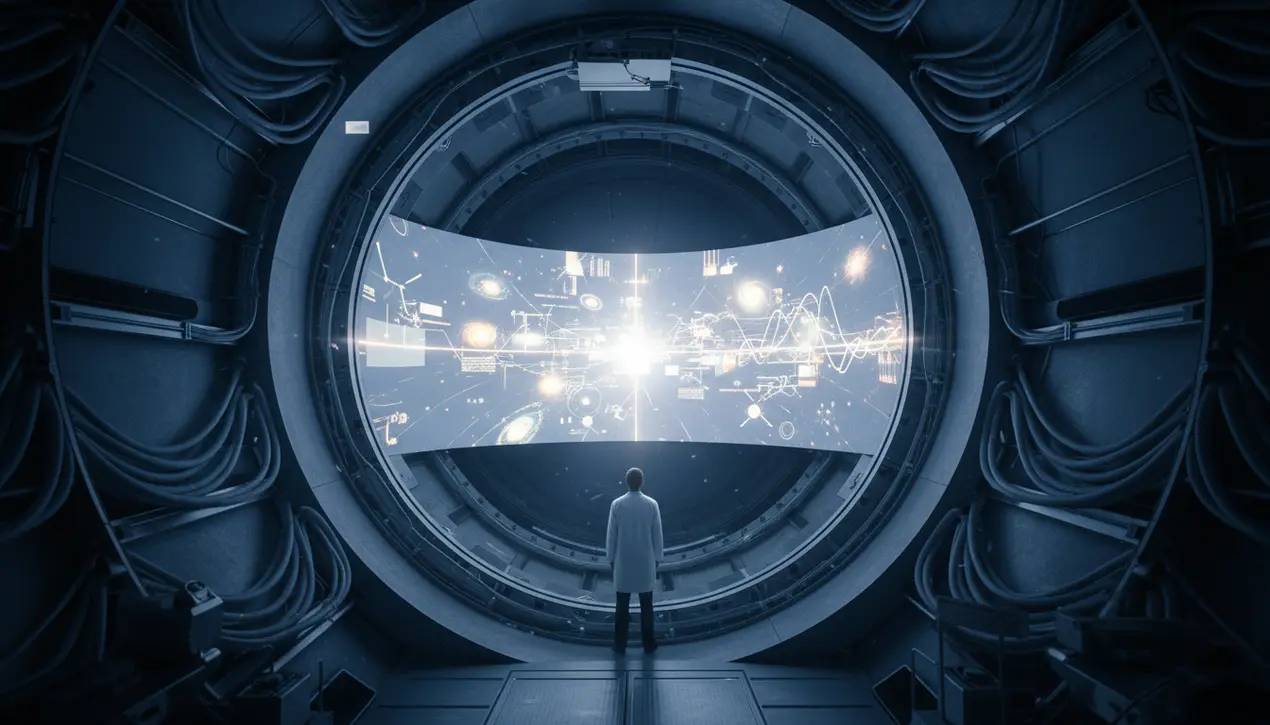
SciencephysicsParticle Physics
What if the aliens come and we just can’t communicate?
TH
Thomas Green
2 hours ago7 min read
The age-old question of whether we are alone in the universe has captivated humanity for centuries, but particle physicist Daniel Whiteson, in his provocative new book 'Do Aliens Speak Physics?', reframes the entire conversation. He posits a chilling and profoundly humbling possibility: what if extraterrestrial intelligence has already made contact, not through radio signals or interstellar probes, but through the fundamental laws of the cosmos, and we simply lack the cognitive framework to recognize it? This isn't merely a thought experiment; it's a direct challenge to our anthropocentric assumptions about communication.We tirelessly scan the heavens with SETI, listening for structured messages that mirror our own logic and mathematics, but this is akin to a dolphin expecting a sonar ping from a human and concluding the ocean is empty when it hears only the vibrations of a ship's engine. Physics, as Whiteson compellingly argues, is the universe's universal substrate, the one language not bound by biology, culture, or planetary evolution.The constants—the speed of light, the gravitational constant, the fine-structure ratio—are the same in a nebula a billion light-years away as they are here. An advanced civilization, one that has perhaps transcended biological form or operates on timescales incomprehensible to us, might not 'speak' in our ephemeral, symbolic languages.Instead, they might engineer their presence into the very fabric of reality, leaving signatures in the orbital resonances of star systems, the subtle anomalies in cosmic microwave background radiation, or even in the seemingly arbitrary values of the fundamental forces that make our universe capable of hosting life. This perspective forces us to reconsider historical anomalies; could the peculiar, still-unexplained dimming of Tabby's Star have been a form of cosmic engineering rather than a natural swarm of comets? The Fermi Paradox—the deafening silence where we expect a cacophony—might not be a paradox at all, but rather a failure of our perceptual and interpretive tools.We are like ants on a circuit board, meticulously aware of the grain of the silicon but utterly oblivious to the internet flowing through it. To bridge this gap, Whiteson suggests a radical shift in our search strategy, moving beyond mere listening to a deeper, more nuanced reading of the cosmos's own code.This involves leveraging our most powerful tools—particle accelerators like the LHC and next-generation space telescopes like the James Webb—not just to discover new particles or galaxies, but to search for 'unnatural' patterns, statistical impossibilities, or architectural fine-tuning that hint at a designer's hand. The ultimate discovery may not be a decipherable 'Hello,' but the staggering, silent realization that the universe itself is the message, and we have been living inside a monument to an intelligence so vast that its very existence redefines our place in the cosmic order.
#aliens
#communication
#physics
#particle physics
#Daniel Whiteson
#featured
Stay Informed. Act Smarter.
Get weekly highlights, major headlines, and expert insights — then put your knowledge to work in our live prediction markets.
Related News
Comments
Loading comments...
© 2025 Outpoll Service LTD. All rights reserved.